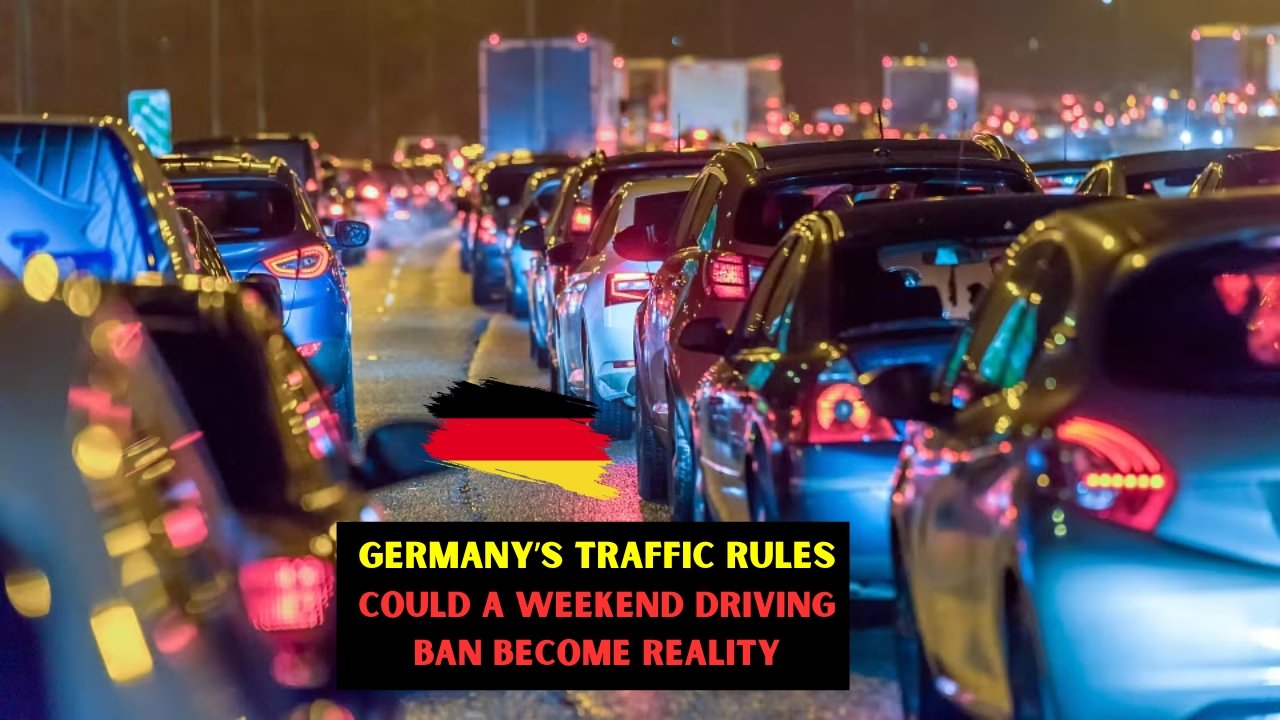Germany is now discussing a plan that was proposed by Transport Minister Volker Wissing to enforce a carbon emission reduction goal set on the country by a particular time frame. Stricter climate laws is the basis for this train of thought. Wissing pushes for a complete, and potentially timeless, stoppage of personal car use on weekends if the country fails to control the emission goals in the desired time. This rationale is now on the national ballot, creating a swirl around the country considering the everyday consequences and environmental trade-off.
Weekend Driving Ban Proposal Details
| Aspect | Details |
|---|---|
| Proposed Ban Days | Saturdays and Sundays |
| Vehicles Affected | Private passenger cars (potentially all vehicles) |
| Current Related Bans | Sundays and holidays – trucks over 7.5 tons |
| Purpose | Reduce carbon emissions, meet climate goals |
| Timeframe | Indefinite, starting if climate targets are missed repeatedly |
| Alternative Measures | Speed limits, improved public transport |
Germany has already set a limit on their carbon emission by a staggering 22 million metric tons to achieve within the frame of a climate protection act. This goal set is part of a bundle. One of the worse sectors, that has a carbon footprint on the global scale, has to be transportation. Wising suggests focusing on personal cars used for weekend escapes to achieve the desired quota. This draconian approach is a Slap on the face of a progressive climate change campaign, denying personal choice.

Present Restrictions on Driving and Traffic
It is worth remembering that in Germany there is already a driving ban on heavy trucks over 7.5 tons on Sundays and public holidays which is in place from 00.00 to 22.00. Additionally, there is a ban in July and August on certain motorways and federal roads on Saturdays from 7.00 to 20.00. These measures are designed to enhance safety on the roads, manage congestion during the height of holiday travel, and reduce pollution. The restrictions are extremely broad and in addition to extending the proposed driving ban over the weekend, would apply to all other private motor vehicles. This would greatly alter how people spend their weekends.
Public and Political Reaction
The proposal has met mixed opinions. Some supporters say the proposal’s weekend ban could lead the way for other countries dealing with drastic climate change and claim climate change’s dire scenarios take bold moves. But critics say it imposes restrictions on personal freedoms and worries about the impact on the economy for the businesses that depend on traffic during the weekends. It is different on the question within the German federal coalition it is because that shows the it is the different layers involved which is lacking in the solution. While some politicians are in favor of using other measures to reduce the emissions more moderate like the speed limits on the highways, the groups are more than willing to take on the politicians.
Potential Impact on Society
The change in policy to a drove ban on the weekend could potentially turn people’s way of life on its head and would change how people engage in social interaction to more reliant on bicycles and public transport. It could eliminate sustained shifts in the public’s ability to control the flow of air which they people put within their own environment. It also could undermine the ability of people to engage in routines of their own choosing, and other relatives towards people who work in others, and more towards areas that are urban. There would also be some travel which would for the few people like making appointments with a doctor or with someone to who has to make a delivery.
FAQs
Q1: Is the weekend driving ban currently in effect in Germany?
No, the weekend driving ban is an still proposed and not yet in effect.
Q2: Which vehicles are affected by the driving bans?
At the moment, the bans are designed for trucks over 7.5 tons on Sundays, public holidays, and select summer Saturdays on certain designated roadways.
Q3: What are the objectives of the driving ban as proposed?
The objectives include decreasing greenhouse gas emissions resulting from transportation for Germany’s climate protection initiatives and increasing the overall air quality.